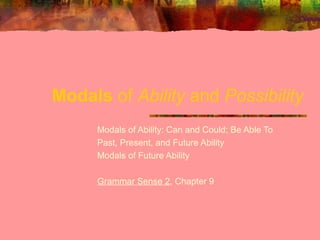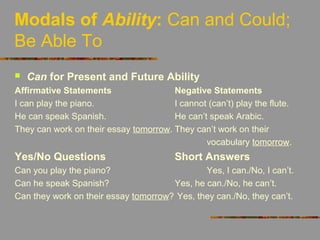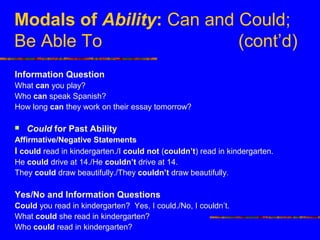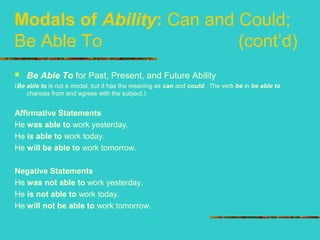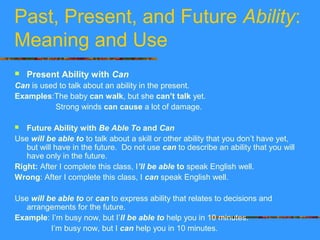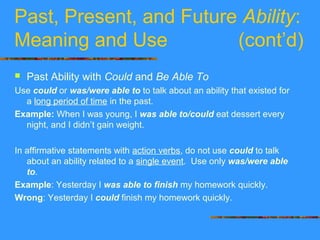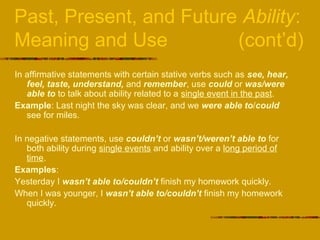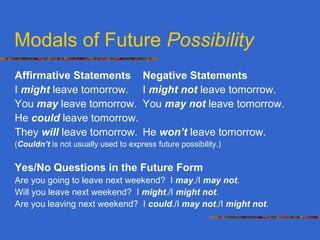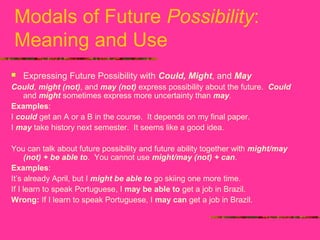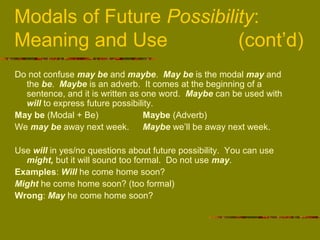This document discusses modals of ability and possibility in English. It explains the uses of can, could, be able to for present, past and future ability. Can is used for present ability, could for past ability, and be able to for past, present and future ability. It also discusses modals of future possibility like might, may, could and will. Modals like might, may and could express uncertainty about the future while will is used in yes/no questions about future possibility.
